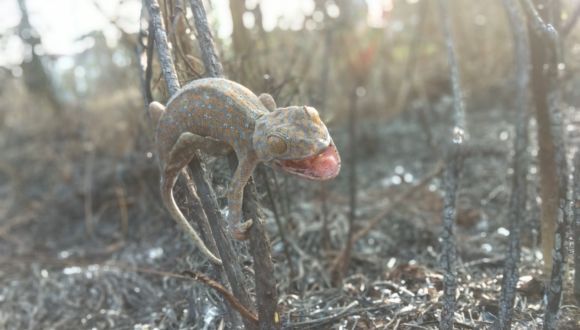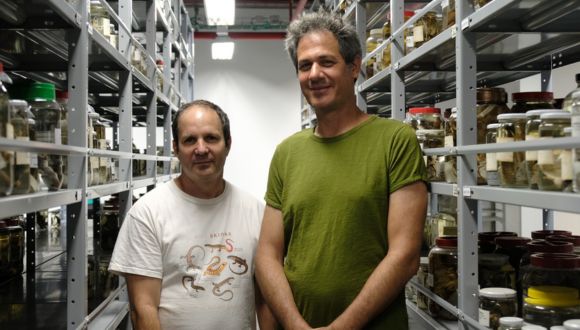
A new study conducted at Tel Aviv University's School of Zoology, Wise Faculty of Life Sciences and Steinhardt Museum of Natural History reveals that the Israel-Hamas war has had a severe impact on animals. The study, which focused on geckos, found that the sound of explosions from fired rockets induces stress and anxiety in these creatures, leading to a sharp increase in their metabolic rates - an energy cost that, if chronic, may be life-threatening. The researchers hypothesize that these stress responses characterize many other animals, especially those who live in the conflict zones in northern and southern Israel.
The study was led by a team of researchers from TAU's School of Zoology and Steinhardt Museum of Natural History - Shahar Dubiner, Prof. Shai Meiri, and Prof. Eran Levin - in collaboration with Dr. Reut Vardi of the University of Oxford. The study was published in the journal Ecology.
Energy Changes in Wildlife
Prof. Shai Meiri explains: "The most tragic aspect of war is the loss of human life, among both soldiers and civilians. However, animals are also severely affected, both directly and indirectly, in ways that may threaten their survival. A few weeks before October 7, we began working on a long-term study to measure the rate of energy consumption of small ground geckos of the species Stenodactylus sthenodactylus. We obviously did not foresee the outbreak of the war, but unintentionally, we recorded the energy consumption of five geckos during the rocket barrages launched into Tel Aviv in the first month of the war".
The study's findings showed that at the sound of the bombings, the geckos' metabolic rate jumped to double what it was when they were at rest. Their breathing became faster, and they clearly exhibited signs of stress. The experiment lasted up to four hours after the barrages, yet even within this timeframe the geckos did not calm down and return to their resting levels. Moreover, even after a month of continuous fighting, the geckos did not acclimate to the sound of the explosions - their stress response remained unchanged.

Left to right: Prof. Shai Meiri and Prof. Eran Levin.
Prof. Levin: "A state of stress is detrimental to both humans and animals. To compensate for the increase in oxygen consumption and depletion of energy reserves, animals need to eat more. Even if they manage to find food, in the process they expose themselves to predators and lose opportunities to reproduce. In a situation of ongoing conflict, such as the current reality in Gaza, the Gaza Envelope, and along the Israeli-Lebanese border, the metabolic cost can be significant and have a real impact on the energy reserves and activity periods of reptiles and other animals. This can exacerbate their conservation status, especially for species that are already endangered".
The researchers note that the findings of this study are consistent with another experiment conducted during Operation Guardian of the Walls, in which they also observed a stress response in a small snake of the species Xerotyphlops syriacus.
Shahar Dubiner concludes: "Our research was conducted in a laboratory at Tel Aviv University and pertained to the reverberations of explosions from interceptions in the Tel Aviv area. However, given the unequivocal results showing symptoms of stress, we can infer that animals that are in the immediate conflict zones in the south and north of the country, where the intensity and frequency of fire are much higher, suffer from significantly more severe stress and anxiety symptoms that may endanger their lives".






